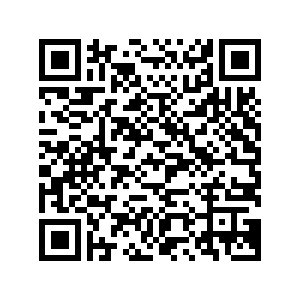OTTAWA, Oct. 14 (Xinhua) -- Canadian Prime Minister Justin Trudeau said Monday that Canada had no choice but to expel six Indian diplomats after the Indian government repeatedly refused to cooperate in investigations into "violent criminal activity" linked to its officials.
Trudeau said the Royal Canadian Mounted Police (RCMP) and national security officials have identified six Indian government agents involved in "collecting, through questionable and illegal means, information on Canadian citizens," which was fed to criminal organizations that "would then take violent actions from extortion to murder."
"Given that the Government of India still refuses to cooperate, my colleague, the Minister of Foreign Affairs, Melanie Joly, had only one choice," he said.
India denied the allegations and quickly retaliated, ordering six Canadian diplomats to leave the country within a week.
In an earlier press conference, Trudeau said India had made a "fundamental error" in believing it could support "criminal activity ... on Canadian soil," calling it "absolutely unacceptable."
Joly said the decision to expel the diplomats was made only after the RCMP gathered "ample, clear and concrete evidence which identified six individuals as persons of interest in the Nijjar case."
"We continue to ask that the Indian government support the ongoing investigation in the Nijjar case," she added.
Canadian police arrested four Indian nationals related to last year's murder of Sikh leader Hardeep Singh Nijjar.
Canadian Public Safety Minister Dominic LeBlanc said in a statement that the RCMP took action because the activities continued and posed a significant threat to public safety, particularly to members of the Sikh and broader South Asian community in Canada.
"For many Canadians, particularly Indo-Canadians, this news will come as a shock," LeBlanc said, adding that the activities are a grave violation of the sovereignty and the rule of law.
The RCMP also issued a statement that it obtained evidence highlighting several serious issues through the national task force and other investigative efforts. These are violent extremism affecting both countries, links connecting Indian government agents to homicides and violent acts, the use of organized crime to foster a perception of insecurity targeting the South Asian community in Canada, and interference in democratic processes, it said.
On June 18, 2023, Nijjar was assassinated outside the Guru Nanak Sikh Gurdwara temple in Surrey, British Columbia. Since then, the Sikh community in Canada has been exerting pressure on the Canadian government for a probe.
Last September, as Trudeau made an explosive statement in the House of Commons that his government was pursuing "credible allegations" from Canadian intelligence against New Delhi for playing a role in the assassination of Nijjar, the relationship between the two countries hit a new low. Canada and India then engaged in tit-for-tat diplomatic expulsions.
Nijjar had been a prominent advocate of the Khalistan movement, which seeks to establish a separate homeland for the Sikh community in India's northwestern Punjab region.
Canada is home to about 770,000 Sikhs, the highest population outside India's Punjab region, and the Indian government has for decades expressed its displeasure with some community members' outspoken support for Khalistan. ■
